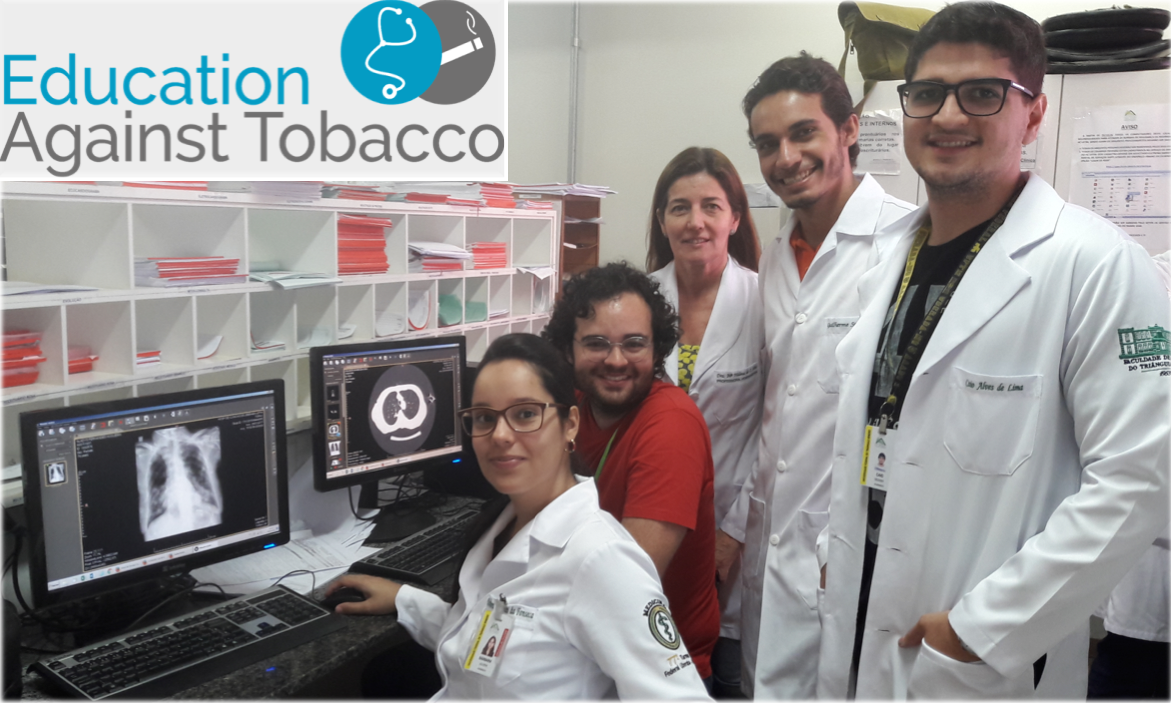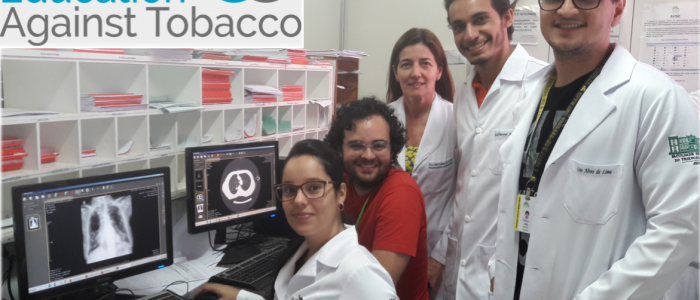Federal University of the Triangulo Mineiro (UFTM) becomes part of the EAT-Brazil network

From left to right: students Bárbara Fonseca and Gabriel Pinto, Prof. Dr. Maria Castro (supportive faculty), students Guilherme Leal and Caio Alves. School of Medicine at Federal University of the Triangulo Mineiro (UFTM), Brazil.
Caio, please introduce yourself and tell us what motivated you to found EAT at UFTM.
My name is Caio Alves and I am 22 years old. I am a 2nd year medical student at Federal University of the Triangulo Mineiro (UFTM) and I have been interested in the areas of nervous and cardiorespiratory systems, as well as preventive health issues. For the future, I intend to be very involved with research, always aiming to contribute significantly to the scientific and social environment. I got to know Education Against Tobacco (EAT) through my brother, Matheus Alves, also a medical student and member of EAT-Brazil at Federal University of Ouro Preto (UFOP). As a supporter of preventive medicine, I quickly identified myself with EAT and realized that through its interventions the project largely promotes health education to young people. In addition, I see in the project a great opportunity to improve my critical thinking towards academic research that generates social impact, which is something that I always wanted. It is an honor to be able to found in my university a group from an international network that shares the same ideals as I do.
Bárbara, what are the next steps to effectively start EAT interventions locally?
First, we need to fill in some application forms to academically register our activities as a community project in order to get logistical support from the Extension Department of our Medical School. We then need to contact secondary schools to make all necessary arrangements to start the workshops.
Gabriel, what is the smoking prevalence in your city among adolescents?
Unfortunately, there are no studies evaluating this prevalence in our city. However, we believe this prevalence may be high when compared to the national average as we are located in the southeast of Brazil, which is the Brazilian region with the second highest proportion of current smokers. As part of our EAT initiative, we are considering the possibility of collecting and releasing these data throughout the next years.
Prof. Dr. Maria Castro, how enthusiastic do you fell about the project and how do you think EAT can contribute to the professional formation of medical students?
Smoking is the most preventable health risk factor and thus it deserves our maximum attention. Despite the implementation of so many educational, legal, and economical measures to ban smoking in Brazil, Brazilian teenagers are still vulnerable to cigarettes and the harms caused by the smoking ‘habit’. In this project we will have the opportunity to act as educators, aiming at raising teenagers’ awareness about the harmful effects of smoking. It will definitely be a rewarding experience to help reduce and control smoking rates in our area. Regarding the med students’ participation, this project will be a unique experience. The students will have the opportunity to study and learn about smoking and the diseases associated with it and, at the same time, will develop the abilities required to raise awareness and will value even more the importance of counseling, preventive measures and health promotion.
More information: https://educationtobacco.org/brazil-uftm

